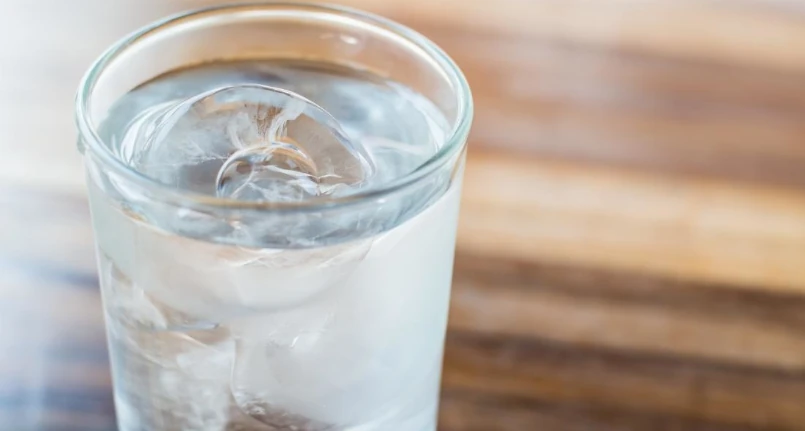Introduction
When spicy foods are eaten, the body has an immediate reaction which manifests itself in copious sweating. This is due to the presence of a substance that triggers this reaction. Capsaicin , the main spicy chemical found in bell peppers and the paprika made from them, causes the body to respond as if there is a rise in temperature. This is due to capsaicin itself activating certain chemical receptors within the body to cause a reflexive cooling response.
What is Capsaicin?
Capsaicin is a molecule present in chili peppers “responsible” for the characteristic spicy taste (it is also present in paprika). The body also has a capsaicin receptor which is found on certain heat sensitive nerves . When activated, these nerves send signals to the spinal cord and brain , a propulsion related to the immediate sensation of heat. The brain responds by triggering chemical reactions to cause the body to cool, such as sweat .
The capsaicin which is concentrated in the fruits and seeds of the pepper, however, also boasts some beneficial properties :
- Rubefacent (on the skin it induces vasodilation with a transient congestant effect)
- Digestive (increases the secretion of saliva and gastric juices )
- Antioxidants
- Antibacterial .
How to neutralize capsaicin
However, it is possible to neutralize the effects of capsaicin to counteract the appearance of sweat. Fresh drinking water may provide temporary relief, but since capsaicin is not water soluble, it won’t prolong the long-term effects. Capsaicin is soluble, however, in alcohol and fat. Drinking a fatty substance , such as milk , can help relieve symptoms .
Sweat and Spicy Foods: Causes
Different substances that give different degrees and nuances of spiciness, in as many foods , are capable of causing sweating, especially on the face. Capsaicin in chili peppers, allicin in garlic , piperine in pepper and gingerol in ginger irritate the ends of nerve fibers that carry pain. They react to the «spicy generators» as if they sensed heat above 43 degrees. This is why a sense of pain is signaled to the brain. The body responds with increased blood circulation to the tissues. In small quantities, the effect is pleasant and makes dishes tastier, but when the level of spiciness increases, hot flashes and more or less copious perspiration appear .
Because capsaicin sends overheating signals to the brain, the brain attempts to cool the body down through certain mechanisms. Specifically, the hypothalamus is the thermoregulatory center of the body. This area of the brain activates the sweat glands , which start producing sweat. In addition to sweat, spicy foods could cause redness on the face , this is because the hypothalamus sends dilation signals to the blood vessels and the consequent dissipation of heat, with consequent cooling of the body.
When you sweat beware of athlete’s foot , which you can fight with natural remedies.
Spicy foods: who should avoid them
Capsaicin has an irritant action on the mucous membranes of the digestive tract ; not only in the pharynx, but also in the esophagus , stomach and intestines . This makes spicy cipi, especially hot peppers, unsuitable for people suffering from gastritis and irritable bowel (both characterized by constipation and diarrhea ). It is no coincidence that, among the most avid chili pepper consumers , we frequently find the manifestation of stomach acidity and gastro-oesophageal reflux .
Even in subjects potentially suffering from hemorrhoids , excessively consuming spicy foods significantly worsens all the symptoms related to them. Persons suffering from kidney or urinary bladder disorders and small children should also avoid spicy foods.
The hottest foods
Here are the spiciest foods that are usually consumed in the preparation of some dishes:
- Chili
- Paprika
- Pepper
- Curry (in the phaal curry variety which contains ten different chilli varieties, including Bhut Jolokia, possibly the strongest chilli in the world)
- Fresh and powdered ginger
- Wasabi
- Harissa
- Gochujang paste
- Achar.
Spicy foods: Benefits
However, capsaicin has significant health benefits for the body. One above all, already mentioned above to explain the phenomenon of heat generated in the body, is the function of a vasodilator ; this feature can be useful in case of arterial hypertension . It also acts as a powerful anti-bacterial and preservative .
Similarly, allicin, a substance that makes the garlic that contains it spicy, has also been evaluated as a very powerful anti-tumor, antibiotic , antiparasitic and antifungal. Among other things, a positive role has been demonstrated on blood pressure , on the reduction of cholesterol levels , on the “fluidification of blood” . It is also a notable antioxidant .
Regarding piperine, contained in pepper, we recall its ability to increase the bioavailability of curcumin , another powerful antioxidant and anticancer.
Benefits of Chilli
In summary, chilli pepper boasts the following beneficial properties:
- Reduces bad cholesterol in the blood
- Check your hypertension
- Contains vitamin C which strengthens the immune system
- Excellent ally to assimilate iron
- Rich in antioxidants
- Helps digestion
- Precious for the eye
- It is rich in mineral salts
- Natural healer
- It is a natural pain reliever




